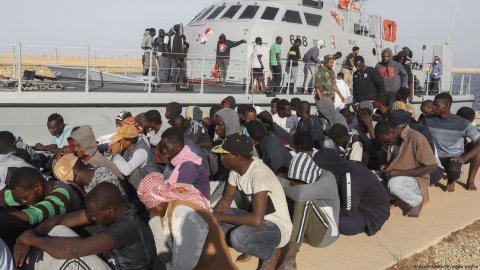Over 100 Freed from Captivity in Libya Gang Incident
In a significant development, more than 100 individuals have been released from captivity in Libya, where they were held by gang members. This incident underscores the ongoing challenges related to immigration and human trafficking in the region, which has become a focal point for many desperate individuals seeking a better life in Europe.
Background on the Incident
The captives were reportedly part of a larger group attempting to migrate through Libya, a common transit point for those fleeing conflict and poverty in their home countries. The situation highlights the **perilous journey** that many immigrants undertake, often falling prey to criminal organizations that exploit their vulnerabilities.
Humanitarian Concerns
The release of these individuals raises several humanitarian concerns that need to be addressed:
The Broader Context of Immigration in Libya
Libya has become a key location in the global migration crisis, with thousands attempting to cross the Mediterranean in search of a better life. The country’s instability has led to a rise in criminal activities targeting migrants, including kidnapping and extortion.
Government Response
The Libyan government, alongside humanitarian organizations, has faced significant challenges in addressing these issues. Efforts to combat human trafficking and ensure the safety of migrants have seen varying degrees of success. The recent release of over 100 individuals is a positive step, but it also highlights the need for:
Impact on Immigration Trends
The ongoing issues in Libya not only affect the immediate region but also have broader implications for immigration trends globally. As conditions worsen, we may see an increase in individuals attempting to flee through Libya, despite the risks involved.
Immigration Policy Considerations
In light of these developments, policymakers in countries such as the United States must consider the implications of their immigration policies. The situations faced by migrants in Libya and other transit countries often reflect the need for comprehensive immigration reform that addresses:
Conclusion
The recent release of over 100 individuals from captivity in Libya is a stark reminder of the challenges faced by migrants globally. As the situation continues to unfold, it is essential for governments and organizations to work collaboratively to address the root causes of migration, improve safety and security for vulnerable populations, and reform immigration policies that can better serve those in need.
In an era where immigration issues are at the forefront of political discourse, understanding the complexities and human experiences behind these numbers is crucial. The journey towards a more just and equitable immigration system begins with acknowledging and addressing the realities faced by individuals seeking safety and a chance at a better life.










